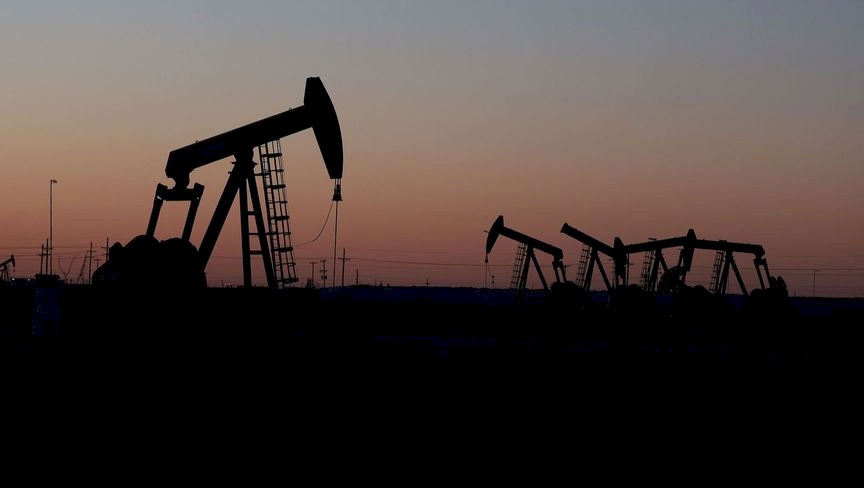
After a Three-Day Decline, Oil Prices Stabilize
SadaNews - The price of oil stabilized after a three-day decline, as investors assessed the impact of Western sanctions imposed on major crude oil producers in Russia, coinciding with mixed industry estimates regarding changes in U.S. inventories.
Brent crude traded above $64 a barrel after falling more than 2% during the previous three sessions, while West Texas Intermediate crude approached $60.
Matthew Whitaker, the U.S. Ambassador to NATO, stated that U.S. President Donald Trump will move forward with new stringent sanctions against Moscow, aimed at pressing Vladimir Putin to enter negotiations to end the war in Ukraine.
Meanwhile, a report from the U.S. industry showed a decline of 4 million barrels in total nationwide oil inventories, along with a decrease in gasoline and distillate stocks. However, the report also indicated an increase in oil inventories at the main storage hub in Cushing, Oklahoma. Official data is set to be released later on Wednesday.
Oil on Track for Third Consecutive Monthly Decline
Oil is heading towards registering its third consecutive monthly decline, as prices have fallen due to expectations of a global surplus as the "OPEC+" alliance increases production.
The alliance is set to hold a meeting at the end of the week, where it is likely to agree on an additional increase in supply. Traders are also watching the progress of a trade agreement between the United States and China, with an anticipated meeting on Thursday between Trump and his Chinese counterpart, Xi Jinping.
Uncertainty Surrounds Sanctions on Russia
Warren Patterson, head of commodity strategy at ING Groep NV in Singapore, said: "The fundamentals of the oil market continue to lean towards a bearish trend, as the OPEC+ alliance continues to increase supply while the surplus in the market deepens."
He added: "It is clear that sanctions on Russia remain the main factor surrounded by uncertainty, and we will need more time to gain clarity on their effects."
Last week, the U.S. Treasury Department blacklisted Russia's largest oil producers, "Rosneft" and "Lukoil", while traders closely monitored signs of the impact of these sanctions.
U.S. officials stated that the administration's plan aims to make Russian trade more expensive and risky without causing prices to rise. In Asia, state-owned refineries in India are considering whether they can continue to purchase some discounted Russian shipments through non-sanctioned suppliers.
Anticipation for U.S. Interest Rates
Traders are also awaiting a meeting of the Federal Reserve on Wednesday, which may determine investors' overall appetite for high-risk assets, including commodities. Policymakers are expected to cut interest rates by a quarter-point.
Regarding oil products, the spread between European diesel futures and Brent crude contracts - known as the crack - rose to its highest level in more than 20 months this week, due to sanctions on Russia and disruptions at some refineries, threatening market supplies.
In the latest transactions, December Brent crude contracts fell by 0.2% to $64.28 a barrel at 11:38 a.m. in Singapore. West Texas Intermediate crude for December delivery decreased by 0.1% to $60.07 a barrel.

Gold and Silver... From Historical Peaks to Collapse

Partial Financial Shutdown Begins in the United States with Anticipation of Quick Resoluti...

Losses Devour a Third of Silver's Value While Gold Experiences Its Biggest Decline Since t...

Trump threatens to impose tariffs on any country selling oil to Cuba, will reveal his nomi...

After rejecting Maliki.. What are Trump's economic cards to pressure Iraq?

Jordanian Central Bank Decides to Maintain Interest Rate

Oil Continues to Rise Amid Increasing US Threats to Iran
